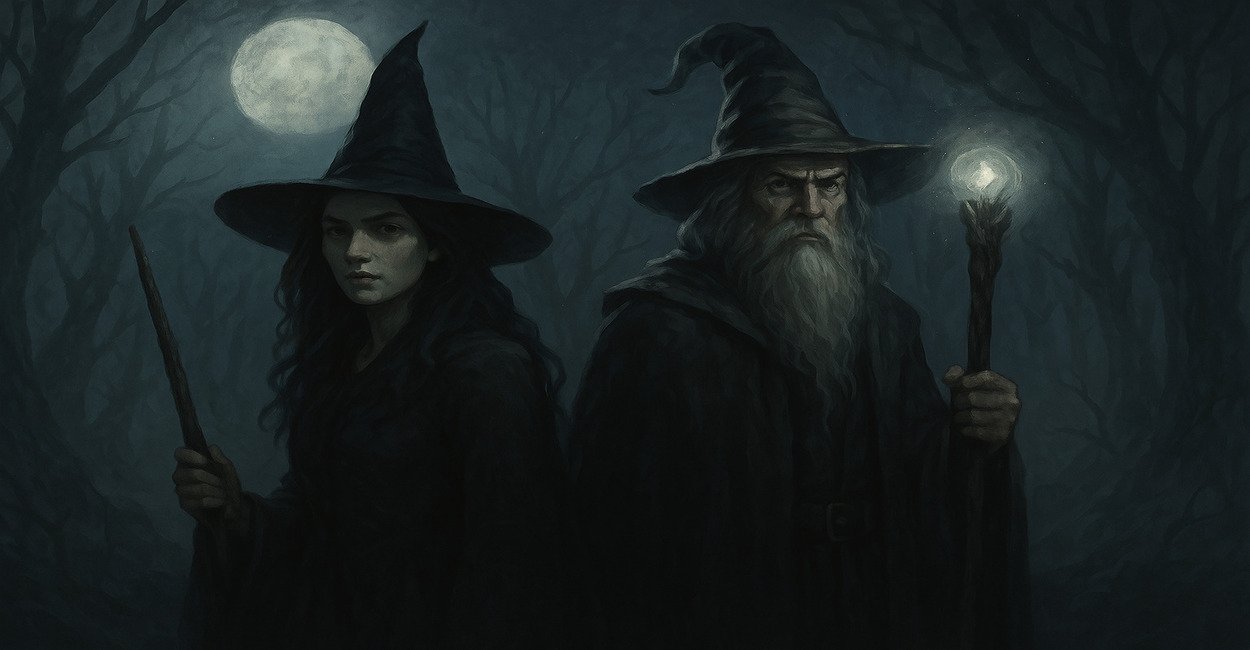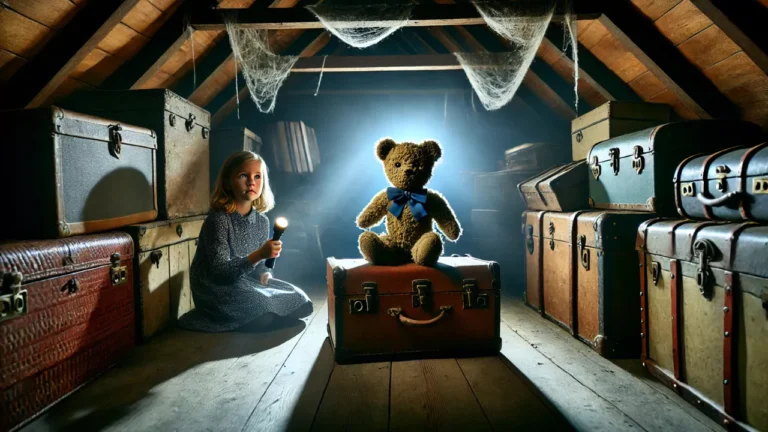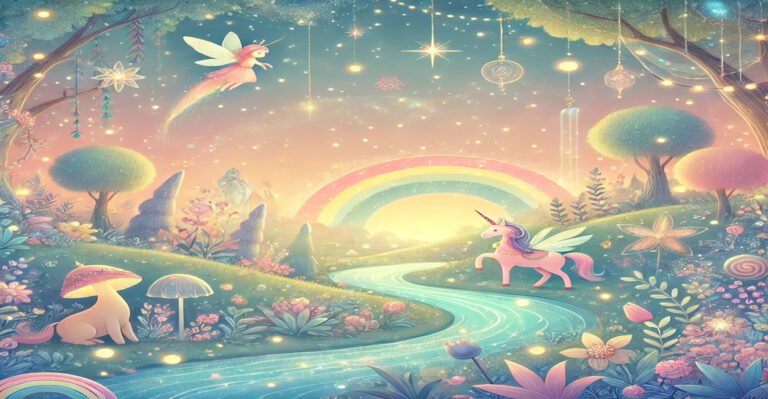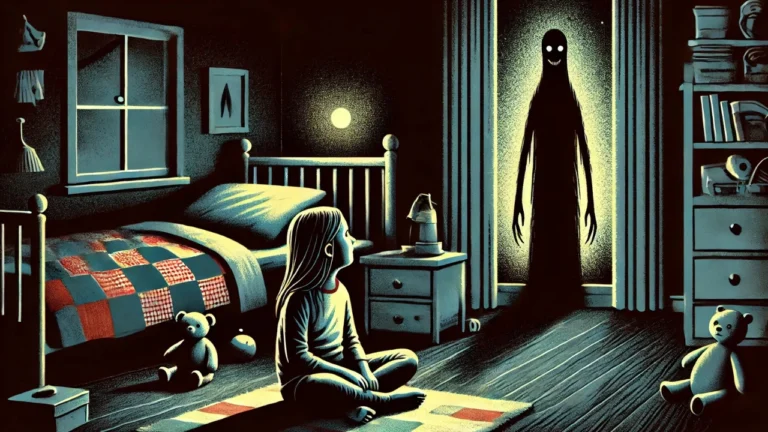Witches and Wizards: Differences, Powers, and Myths
Magical worlds abound in wonder, mystery, and intrigue. Many civilizations have passed down tales of people with extraordinary ability, casting spells and elemental mastery across history. Regarding magical beings, however, the words witches and wizards are sometimes used synonymously. Are they the same? Alternatively, do these magical people have certain duties and powers?
Here at Storieslet, where we breathe life into gripping stories, we explore the variations, powers, and legends around witches and wizards. Come explore the amazing world of these magical beings with us as we examine their origins, powers, and how contemporary representations vary from ancient mythology. This book will reveal the reality behind the variations between witches and wizards regardless of your interests in magical lore, fantasy fiction, or storytelling.
A Synopsis of the Origins of Witches and Wizards
Understanding where these figures come from and how they have developed can help us to better appreciate the variations between witch and wizard.
Witches: Older Roots in Magic
For millennia, witches have been a part of many societies; their background is firmly grounded in magic, superstition, and mysticism. Usually, the word “witch” brings images of women who understand spells, potions, and the natural world. Traditionally, witches were supposed to use ceremonial actions, incantations, and medicines to control nature.
Many ancient societies prized witches as knowledgeable women, healers, and spiritual guides. Often performing key roles in ancient communities, they assisted with childbirth, illness healing, and protection against evil spirits. Still, witchcraft evolved to be connected with darker energies. In medieval Europe, for example, witches were sometimes portrayed as malevolent people able to send curses or speak with demons.
Wizards: Scholarly Practitioners of Magic
Conversely, wizards are usually presented as manly, intellectual people who have become experts in magic by years of study, training, and discipline. Many times, the wizard is a symbol of authority, wisdom, and power. Unlike witches, who are sometimes connected with nature and innate magic, wizards usually depend on knowledge and controlled magical systems.
Originally from ancient times as well, the idea of the magician first appears in mythology and folklore. For instance, magicians and sorcerers were renowned in ancient Greece and Rome for their capacity to control the elements and foretell the future. Wizards were considered as practitioners who acquired control over supernatural forces by means of education and experience.
Key Characteristics and Roles: Witches and Wizards Difference
Let’s now explore the main distinctions between witches and wizards, given our historical background for both magical characters. These differences apply to their gender, cultural significance, and positions in folklore as well as to their magical prowess.
Gender Relations: Witches against Wizards
Among the most important distinctions between wizards and witches is gender. Traditionally, wizards were considered as male and witches as nearly always female. Societal conventions and cultural ideas across history help to explain this gender difference.
Witches
Women were mainly connected with witchcraft in ancient and medieval periods. Often depicting the “witch” as a woman who had acquired supernatural powers either by contract with dark forces, a hereditary inheritance, or natural ability, she was. In popular culture, where witches are still most often portrayed as female, this gender link has endured.
Wizards
Usually, wizards are men. Usually presented as an adviser or protector, this gender disparity has come to be connected with the knowledgeable elderly man. From Merlin in Arthurian fiction to Gandalf in The Lord of the Rings, wizards are usually shown as older men who have gained considerable magical ability.
Enchanting Methodologies and Skills
Additionally different are the magical techniques of witches and wizards. Although both groups have amazing ability, their tools and approaches usually differ greatly.
Witches’s Magic
Usually, depending on natural roots, witches use spells, potions, and rituals. Often more straightforward, their magic depends on a relationship with the earth, moon, and natural forces. Common associations for witches are herbalism, astrology, divination, and other kinds of nature-based magic. Their spells can call for chanting, potion making, calling spirits, or gods
Wizards’ Magic
Conversely, wizards’ approach to magic is sometimes seen as more scholarly. To spell, they might rely on magical scrolls, old tomes, and arcane knowledge. Many times, wizards are shown as wielding strong wands or staffs that enable concentration and magnificent enhancement of their magical talents. Unlike witches, wizards are portrayed as more methodically studying magic, usually trying to comprehend and regulate the powers of the supernatural.
Powers of Witches and Wizards: A Comparison
Although their methods and tactics vary, witches and wizards have amazing abilities. Nevertheless, depending on their part in the narrative or myth, the powers of witches and wizards are sometimes shown differently.
Witches: Management of the Elements and Nature
Many times, witches are seen as naturally connected to the elements and the surroundings. This link helps them to control the surroundings’ natural environment. Typical powers connected with witches consist in:
Potion Brewing
Witches can create potions that heal, harm, or transform. These potions are made from herbs, plants, and mystical ingredients found in nature.
Spellcasting
Witches can cast spells that manipulate the elements (fire, water, earth, and air). They may use rituals, chants, or even their energy to perform these spells.
Divination
Many witches can predict the future or communicate with spirits. This can include using tools like tarot cards, crystal balls, or scrying mirrors.
Masters of Overarching Magical Arts
By contrast, wizards are usually shown as having a strong awareness of magical laws and ideas. Their abilities usually result from thorough knowledge and control over magical capabilities. Among wizards’ common powers are:
Elemental Control
Like witches, wizards can control the elements. However, their mastery over these forces tends to be more scientific and structured, often requiring tools such as wands or staffs.
Transmutation
Wizards can change the form of objects or creatures, turning one thing into another. This form of magic is often highly complex and requires a deep understanding of magical principles.
Enchantment
Wizards can enchant objects with magical properties. This can range from imbuing a sword with magical strength to creating protective charms or amulets.
Stories and Myths Regarding Witches and Wizards
Like any legend, witches and wizards have been the target of stories and misunderstandings that change with time. Let’s investigate some of the most often believed false ideas about these supernatural entities.
Witches: Positive or negative?
Many people believe that witches either naturally are evil or serve wicked forces. Although this is true in certain folklore, such stories of witches creating pacts with the devil, many societies considered witches as wise women or healers who used their magical abilities for good. shows like Sabrina the Teenage Witch or Charmed contemporary witches as powerful, self-reliant women who use their skills to fight evil.
Wizards: All Smart and Good?
Many times, wizards represent smart, kind people. Not all wizards, meanwhile, fit this picture. Many tales have wizards as corrupt or power-hungry people trying to rule the magical world or perhaps the mortal domain. One well-known example is Saruman, a wise wizard turned dark in his quest for power in The Lord of the Rings.
Conclusion
In essence, although both wizards and witches have magical ability, their roles, powers, and impressions have changed with time. In terms of gender, magical methods, and cultural relevance, witches and wizards differ somewhat greatly. Both characters, whether they be wizards depending on old knowledge and spells or witches embracing nature-based magic, nonetheless inspire us.
Storieslet honors the enchantment of narrative and the complex customs around these legendary figures. Whether your enthusiasm is for witches, wizards, or both, the magical world is full of wonder and mystery offering many chances for new stories and adventures.
Remember that the magic resides in the stories they inspire and the myths they leave behind as we keep uncovering the universe of witches and wizards; it is not only in their ability.
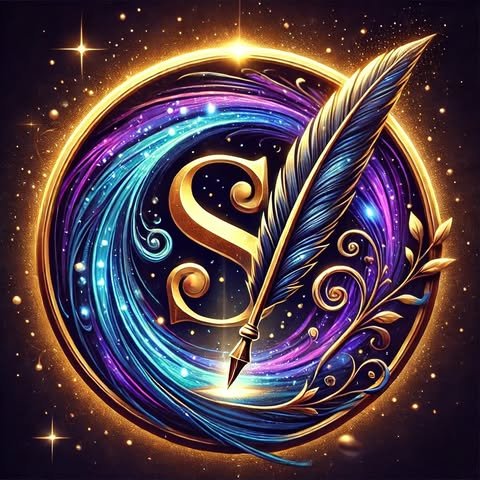
Storieslet is a storytelling platform dedicated to bringing joy, learning, and imagination to readers of all ages. From bedtime stories for kids to fairy tales, moral lessons, and thrilling adventures, it offers a diverse collection of captivating narratives. Each story is carefully crafted to entertain, educate, and inspire young minds. With a blend of classic and modern tales, Storieslet ensures a magical reading experience for families. Discover enchanting stories and timeless lessons at Storieslet!

